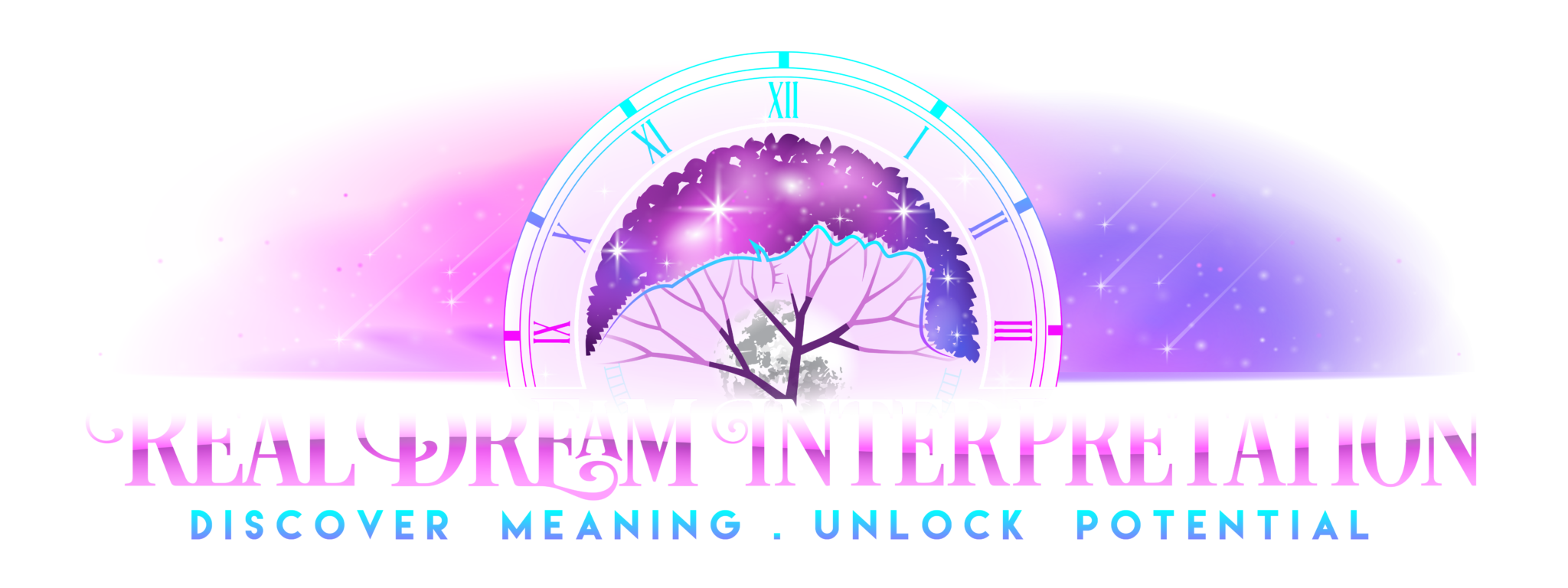 Dreams about flying are common. Yet contrary to the one-size-fits-all interpretation on so many dream sites, these dreams have diverse meanings. Always remember that dreams are constellated by our conscious life situation. In Jungian analysis, the significance of these dreams is not just in the act of flying itself but in the context and emotional landscape influencing the dreams.
Dreams about flying are common. Yet contrary to the one-size-fits-all interpretation on so many dream sites, these dreams have diverse meanings. Always remember that dreams are constellated by our conscious life situation. In Jungian analysis, the significance of these dreams is not just in the act of flying itself but in the context and emotional landscape influencing the dreams.
For some, dreams about flying may highlight overly ambitious aspirations, often depicted through imagery of falling or instability, echoing the myths of Icarus and Phaethon. In other flying dreams, for example in the sight of doom and gloom below can signify a state of dissociation, reflecting a detachment from one’s grounded reality.
Conversely, a sense of being too entrenched in the concrete aspects of life might manifest as compensatory flying dreams, which encourage rising up, thus symbolizing a need for elevated perspective or higher aspiration.
Table of Contents - Jump to Section
A Cautionary Note on Dreams about Flying
As we explore the symbolism of flying in dreams through case studies, remember these examples serve NOT as a one-to-one comparison for your own dreams. The beauty and complexity of dream analysis lie in its unique meaning for the individual dreamer.
Many sources claim to offer definitive interpretations of specific dream scenarios, suggesting a kind of ‘dream dictionary’ approach. However, this is not how authentic dream analysis works. There is no universal template that can accurately decode an individual’s rich dream world. Instead, the examples provided here are intended to guide you in understanding the broader themes and psychological dynamics that might be at play in your own dreams about flying.
By considering these examples, you can gain insight into the multifaceted nature of flying dreams and how they might relate to your own experiences and feelings. Remember, the key to unlocking the meaning of your dreams lies in your personal narrative and emotional landscape. Keeping a daily journal of your life, both inner and outer, is essential.
Dreams About Flying: When Your Aspirations are too High
 The myth of Icarus is a classic tale from Greek mythology that serves as a cautionary story about the dangers of hubris and overambition.
The myth of Icarus is a classic tale from Greek mythology that serves as a cautionary story about the dangers of hubris and overambition.
Icarus was the son of Daedalus, a skilled craftsman who created the Labyrinth on Crete. When Daedalus and Icarus were imprisoned in Crete by King Minos, Daedalus devised a plan to escape. He crafted two sets of wings for himself and Icarus, made of feathers and wax.
Before they took flight, Daedalus warned Icarus not to fly too high or too low. Flying too low would cause the sea’s dampness to clog his wings. And flying too high would cause the sun to melt the wax. However, once in the air, Icarus, exhilarated by the experience, ignored his father’s warning. He flew higher and closer to the sun, which melted the wax in his wings. As a result, Icarus fell into the sea and drowned.
The story of Icarus metaphorically describes situations where individuals, driven by overconfidence or ambition, fail to heed wise counsel, leading to unintended consequences. In the context of dreams about flying, this myth symbolizes the perils of overreaching one’s capabilities or losing touch with practical realities.
Inflation and Its Role in Dreams About Flying
 In Jungian psychology, ‘inflation’ refers to an ego state where an individual loses their grounding in reality, often because of an overblown sense of their own importance or capabilities. This is exemplified in the Icarus myth, where Icarus’s flight too close to the sun can be seen as a metaphor for an inflated ego, which ultimately leads to his demise.
In Jungian psychology, ‘inflation’ refers to an ego state where an individual loses their grounding in reality, often because of an overblown sense of their own importance or capabilities. This is exemplified in the Icarus myth, where Icarus’s flight too close to the sun can be seen as a metaphor for an inflated ego, which ultimately leads to his demise.
Dreams about flying that abruptly turn into falling often symbolize this psychological inflation. These dreams may suggest that the dreamer is experiencing overconfidence or ambitions that are not congruent with their actual situation or abilities. These dreams offer an objective, unconscious perspective on the dreamer’s current ego state, illuminating aspects of themselves that they may not consciously acknowledge.
In analysis, addressing dreams that point to inflation involves examining the root causes of this ego state. It could stem from deep-seated insecurities, a wish to escape from one’s current reality, or even unaddressed fears. Through understanding and integrating these factors, the inflated ego can be brought back to a more balanced and realistic state.
Consequently, dreams about flying excessively high and then experiencing a fall are meaningful indicators of the psyche’s current condition, prompting a need for introspection and a reevaluation of one’s role in the larger scheme of things.
Unconscious Inflation and Compensatory Dreams About Flying
 In Jungian analysis, individuals who consciously feel inferior or inadequate may experience an unconscious compensation through a power complex. This psychological balancing act often surfaces in dreams about flying, especially for those who do not perceive any sense of superiority or inflation in their waking life.
In Jungian analysis, individuals who consciously feel inferior or inadequate may experience an unconscious compensation through a power complex. This psychological balancing act often surfaces in dreams about flying, especially for those who do not perceive any sense of superiority or inflation in their waking life.
Consider a dream where you’re flying high above others, commanding a grand perspective of the world below. This imagery might seem contradictory to your conscious experiences of feeling lesser or modest. However, this dream is not a random fantasy; it’s a direct expression of unconscious inflation – a concealed sense of superiority or a latent power complex that acts to counterbalance your conscious feelings of inadequacy.
This compensation isn’t merely an attempt; it effectively restores balance within the psyche. The unconscious mind, through the dream, provides a counterweight to the conscious mind’s sense of inferiority. Consequently, the dream about flying becomes a symbolic manifestation of this unacknowledged ego state. It’s a reflection of the unconscious effort to achieve equilibrium, not a conscious expression of arrogance.
For the conscious ego, the challenge and the path to greater self-awareness lie in recognizing and integrating this compensatory dream image. By understanding and acknowledging this dynamic, an individual can begin to reconcile these opposing internal aspects – the conscious experience of inadequacy and the unconscious power complex. This process fosters a more harmonious and integrated self-identity.
The Myth of Phaethon: Identity, Control, and the Illusion of Power
 The story of Phaethon, son of the sun god Helios, in Greek mythology, provides a different yet complementary perspective to our exploration of dreams about flying. Phaethon’s tale, rooted in his quest for identity and his attempt to control the sun chariot, offers insight into the psychological themes of identity struggle and the repercussions of overestimating one’s abilities.
The story of Phaethon, son of the sun god Helios, in Greek mythology, provides a different yet complementary perspective to our exploration of dreams about flying. Phaethon’s tale, rooted in his quest for identity and his attempt to control the sun chariot, offers insight into the psychological themes of identity struggle and the repercussions of overestimating one’s abilities.
Phaethon’s insistence on driving the sun chariot, despite his father’s warnings, reflects a deep need for self-validation and identity assertion. His subsequent loss of control over the chariot and the ensuing chaos symbolize the dangers of overreaching and the illusion of control. In the context of flying dreams, this myth can be particularly relevant for understanding dreams where the dreamer grapples with issues of identity, control, and the consequences of wielding power beyond their capacity.
The myth serves as a reminder of the need for self-awareness and the understanding of one’s limitations. In the Jungian analysis of dreams about flying, Phaethon’s story enriches the narrative, providing a broader spectrum of themes to consider, from personal ambition to identity crises and the delicate balance of power and control.
Case Study: The Paradox of Knowing and Not Flying
 In the context of our exploration of dreams about flying, let’s consider a specific example that reflects the nuanced nature of these dreams. An individual recounted a dream where they knew they could fly, yet found themselves unable to do so. This dream scenario offers a rich field for Jungian analysis, highlighting several psychological dynamics at play.
In the context of our exploration of dreams about flying, let’s consider a specific example that reflects the nuanced nature of these dreams. An individual recounted a dream where they knew they could fly, yet found themselves unable to do so. This dream scenario offers a rich field for Jungian analysis, highlighting several psychological dynamics at play.
Firstly, this dream may signify a hesitation in reaching for higher goals or aspirations. The knowledge of the ability to fly juxtaposed with the inability to actualize this potential suggests an inner conflict. This could stem from a fear of failure or, intriguingly, a fear of success. Such fears can act as psychological barriers, keeping the individual grounded despite their latent capabilities.
Additionally, the dream may be pointing to self-limiting beliefs that restrict the individual’s progress. These beliefs, often ingrained and unconscious, can effectively clip one’s wings, preventing the realization of their true potential.
Another layer of interpretation considers the timing of the dream. Is it occurring during a period of potential change or growth in the individual’s life? Such dreams can emerge as reflections of life transitions, signaling both the opportunities and challenges that come with them.
Crucially, the personal context and emotional resonance of the dream with the individual’s life are key to unlocking its meaning. It’s not just about the act of flying or the frustration of not being able to fly; it’s about what these experiences symbolize in the tapestry of the dreamer’s psyche and life journey.
Through this example, we see how dreams about flying can serve as profound indicators of our inner world, revealing fears, desires, and the ongoing dialogue between our conscious reality and the unconscious.
Case Study: The Dream of Liberation and the Readiness to Fly
 A woman in her mid-thirties, facing the weight of obsessive-compulsive neuroses, persistent depressive disorder, and co-dependency, recounted a dream that vividly mirrored her inner struggles and the possibility of profound change. Her psychological burdens, stemming from childhood neglect and abuse, were powerfully depicted in her dream narrative.
A woman in her mid-thirties, facing the weight of obsessive-compulsive neuroses, persistent depressive disorder, and co-dependency, recounted a dream that vividly mirrored her inner struggles and the possibility of profound change. Her psychological burdens, stemming from childhood neglect and abuse, were powerfully depicted in her dream narrative.
She dreamed of pushing a heavily laden cart through a city, burdened with possessions representing her past – items she had physically discarded but emotionally clung to. Weighed down and feeling unseen, her journey seemed endless until an old woman appeared. This wise figure questioned her need to carry this load, suggesting a liberating alternative: “Honey, why are you pushing this cart around? Can’t you see it holds you back? Just leave it behind and be free.”
The act of letting go of the cart marked a significant shift in the dream. She began to run, her feet lifting off the ground, no longer held by the gravity of her past. Her laughter and tears intertwined, symbolizing the duality of her release and joy. This flight was not just a moment of escape but a sign of her readiness to transcend her past limitations.
The dream revealed the dreamer’s readiness for transformation. Her latent potential, overshadowed by her struggles, was now ready to take flight. The wise woman in her dream served as a catalyst, offering a new direction for her psychic energy – a chance to redirect her libido towards a path of freedom and fulfillment.
The pivotal question posed by this dream was whether the dreamer would embrace this opportunity to lay down her past burdens and allow herself to soar into a new realm of possibility and liberation.
Dreams About Flying: Journey from Physical Sensations to Deep Emotional Insights
Another dreamer shared a vivid dream of effortlessly gliding through the skies. She described this experience as a profound escape from limitations. As she spoke, the analyst experienced an unusual tightness in his throat, a sensation not typically present. Recognizing the synchronicity with the dream narrative, he inquired if the dreamer felt restricted in any area of her life that she sought to escape from. Initially, she couldn’t connect this feeling to her current life circumstances.
Encouraged by the analyst to focus on her throat and any sense of constriction there, the dreamer soon had a breakthrough. She recalled episodes of childhood throat infections, which she articulated as ‘being choked by invisible hands,’ restricting her voice. This recollection led to the realization of her domineering father’s presence in her life, often silencing her and prompting her to retreat into a world of imagination and dissociation, akin to her dream of flying.
This insight opened up discussions about her current experiences in analysis. She had been unconsciously feeling constrained by the structured nature of the sessions, replicating the pattern of feeling stifled and subsequently seeking mental flight. Acknowledging these feelings in analysis helped alleviate the sensation of constriction, symbolically and physically, allowing her a clearer voice in both her dreams and waking life.
Case #2: Dreams About Flying
 In another intriguing case, a dreamer often recounted dreams where she found herself soaring above the clouds. She expressed a persistent sense of exhilaration at this ability to fly in her dreams. Intrigued by this repeated theme, the analyst prompted her to look down in her next dream and take note of what was below her.
In another intriguing case, a dreamer often recounted dreams where she found herself soaring above the clouds. She expressed a persistent sense of exhilaration at this ability to fly in her dreams. Intrigued by this repeated theme, the analyst prompted her to look down in her next dream and take note of what was below her.
In a subsequent session, the dreamer shared a new development. When she looked down from her flight, she saw a desolate landscape, filled with abandoned buildings and overgrown with weeds. These scenes, she realized, represented neglected parts of her own psyche – areas of her life that she had abandoned and ignored.
This revelation caused a significant shift in her dream experiences. Instead of the usual joyous flight, she began to feel a sense of melancholy and a gradual descent back to the ground. The act of acknowledging these abandoned aspects of herself marked the beginning of a journey to confront and integrate these neglected elements, moving from an illusory sense of happiness to a more grounded and authentic engagement with her inner world.
Dreams About Flying: Final Thoughts
 In our exploration of dreams about flying from a Jungian perspective, we’ve journeyed through a landscape rich in symbolism and psychological insight. From the personal narratives embedded in our case studies to the mythic echoes of Icarus and Phaethon, these dreams reveal a complex interplay between our conscious experiences and the deeper layers of the unconscious.
In our exploration of dreams about flying from a Jungian perspective, we’ve journeyed through a landscape rich in symbolism and psychological insight. From the personal narratives embedded in our case studies to the mythic echoes of Icarus and Phaethon, these dreams reveal a complex interplay between our conscious experiences and the deeper layers of the unconscious.
As we’ve seen, dreams about flying often reflect themes of aspiration, freedom, and sometimes, the consequences of overreaching. They offer a symbolic representation of our innermost desires, fears, and the ongoing dialogue between our potential and limitations. But just as these dreams can symbolize an ascent to new heights, they often come hand in hand with their counterparts: the compensatory dreams of falling.
Dreams of falling often serve as a counterbalance to those of flying, reminding us of the need for grounding and cautioning against the perils of losing touch with reality. They represent the other side of the coin, a necessary complement that underscores the Jungian concept of compensation – the psyche’s way of maintaining equilibrium.
As you reflect on your own dreams about flying, consider them within this broader context of psychological balance. And for those interested in delving deeper into the realm of falling dreams, their meanings, and what they reveal about our unconscious, I invite you to explore further in our upcoming article [Link to the article on dreams of falling].
In conclusion, the analysis of dreams about flying, enriched by mythological parallels and Jungian psychology, offers us a window into the soul’s deepest workings. These dreams, whether they take us soaring above the clouds or descending back to earth, remind us of the intricate dance between our aspirations and our realities, inviting us on a continuous journey of self-discovery and balance.
- Hidden Meaning in Dreams About Flying: A Jungian Analysis - December 17, 2023
- Dreams About Tsunamis:Title Waves of Transformation - October 30, 2023
- What your dreams are telling you about your life - October 27, 2023
Share this Post


